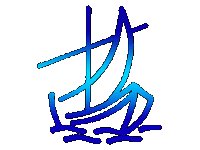I hope the links below are helpful. Remember, though, that not even Jesus was able to help all of His followers understand. When most of the disciples walked away from this hard teaching, Jesus let them, asking the Apostles if they were going to go also.
Accepting Jesus' Presence in the Eucharist is a matter of grace from God. So prayer is the first, middle, and last necessity to bring loved ones into the Truth. Remember also that Jesus is Love, and that by our Love, Christians were recognized and won over converts.
Cannibalism Link 1
Is Jesus Present in the Eucharist?
The Real Presence in John 6: Scroll down to 7th or so entry. The 8th one defines some of the terms...
Science and the Eucharist
Eucharist & Transubstantiation
Transubstantiation & Reason
Link with More Links on the Eucharist
~~~~~~~~~~~~~~~~~~~~~~~~~~~~~~~
From http://www.dioceseofknoxville.org/?id=1422&level=1&menu=1417:
Question: I don’t want to sound blasphemous, but if someone were to say it’s cannibalistic to eat and drink Jesus’ body and blood, how should I respond? —J.A.P.
Answer: Our Lord himself did not meet with total acceptance when he taught, “unless you eat the flesh of the Son of Man and drink his blood, you do not have life within you” and “my flesh is true food and my blood is true drink.” In fact, following the bread of life discourse (see John 6:22-71), the Gospel tells us that “many of his disciples who were listening said, ‘This saying is hard; who can accept it?’” and “as a result of this, many of his disciples returned to their former way of life and no longer accompanied him.”
As the Catechism of the Catholic Church points out, “The Eucharist and the Cross are stumbling blocks. It is the same mystery and it never ceases to be an occasion of division” (CCC No. 1336).
In responding to the question of cannibalism, a Catholic can point out that the sacrament of the holy Eucharist, although truly the body and blood, soul and divinity of our Lord Jesus Christ, is given to us under the appearance of bread and wine. In the language of philosophy and theology, the bread and wine retain their “accidents,” that is, they still smell, look, and taste like bread and wine to our senses in order that we may consume them into our body and soul, but in reality, the Eucharist is the whole and complete Christ, the “Lamb of God, who takes away the sins of the world,” which was foreshadowed in the Old Testament by the Passover lamb that was sacrificed and consumed by God’s people on the occasion of their deliverance from slavery in Egypt.
Christ instituted the Eucharist, the sacrifice of his body and blood, at the Last Supper, in order to perpetuate the sacrifice of the cross throughout the ages until he should come again. The Bible and the earliest practice of the church testify that from the time of the apostles, it has been the faith of the church that the holy Eucharist is really the body and blood of Christ.
Friday, October 12, 2007
Jesus' Eucharistic Presence: Communion or Cannibalism
~AMDG~
Robin L. in TX
at
12:55 AM
![]()
Labels: Cannibalism, Eucharist
Subscribe to:
Post Comments (Atom)






2 comments:
Thank you for the explanation, and these very helpful sites. This question is very common, and often used against Catholics to ridicule the faith. At the same time, it's our responsibility to respond in love, and to try and communicate this beautiful mystery to the world. The articles you provide are very helpful, especially the one by Vogel.
I'm glad you have found the sites useful. Whenever responding to questions, even attacks it is important to remember that most of those who attack our faith do so because they truly believe that we are "wafer-worshippers" whose salvation is in jeopardy.
Norma McCorvey (Jane Roe of Roe v Wade) was won over to the Christian, and then further to the Catholic Faith by the love and charity shown to her by pro-life workers and their families.
Even when we can't see any positive results, we need to sow love and charity in every response. Truth, yes, b ut with love.
Post a Comment